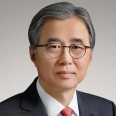*This is an opinion expressed in the Chosun Ilbo Op-ed on August 02, 2021.
It has been six months since the Biden administration took office, yet no concrete measures have been announced regarding the North Korean nuclear issue. The only thing clear so far is that the Biden administration’s North Korea policy is neither Obama’s “strategic patience” nor Trump’s “big-deal,” but a “calibrated, practical approach” emphasizing diplomacy.
The Biden administration has its hands full dealing with China, Russia, and the Middle East as well as COVID-19 and the economic recovery at home, meaning that it faces difficulties focusing on resolving the North Korean nuclear issue. The North Korean nuclear crisis began with North Korea’s withdrawal from the Nuclear Non-Proliferation Treaty in 1993. For the past 30 years, the United States has tried to resolve the problem to little avail. Instead, the situation has only worsened as North Korea’s nuclear capabilities have steadily advanced, and the United States seems worn out. If the situation persists, there are concerns that U.S. aims might change from denuclearizing North Korea to managing its nuclear weapons, eventually leading it to recognize North Korea as a nuclear-armed power.
It is worth looking at how the North Korean nuclear problem got to this point and what measures have been attempted thus far. The very first measure that was considered was a military response. While the Clinton and Trump administrations both contemplated a military operation, it has never been implemented. President Kim Young-sam, in phone calls with President Clinton, opposed U.S. plans for a surgical strike on the Yongbyon nuclear facility. President Moon Jae-in publicly opposed the Trump administration’s military plans. No one wants war on the Korean Peninsula, but the United States must have felt uncomfortable with the South Korean government, which openly opposed the military operation without offering any alternatives.
The second option is to put pressure on North Korea through UN Security Council economic sanctions as well as unilateral sanctions by major countries. Although sanctions have inflicted suffering on North Korea, it is evaluated that they have never been good enough to change North Korea’s mind. This is because North Korea has found ways to evade sanctions while China and Russia have not properly enforced sanctions.
Against this backdrop, some argue that in order to stop North Korea from further advancing its nuclear capabilities, it should be recognized as a nuclear-armed power. In an article in The National Interest, Robert A. Manning suggested that the North Korean nuclear problem has no “solution” and “can only be managed.” The Eurasia Group, an American consulting firm, also said in its recent report that, “President Biden has discussed with White House advisors the prospect of engaging North Korea in a formal arms control framework, rather than trying to push for denuclearization and normalizing North Korea as a nuclear power while negotiating limits on further production of fissile material and more advanced technologies.”
This suggests that the Biden administration may settle for a freeze of North Korea’s nuclear weapons program. If the United States offers to compromise at the level of a nuclear freeze, North Korea will welcome it with open arms. But since this would be tantamount to making South Korea a nuclear hostage of the North, this is an unthinkable solution for South Korea. The core of arms control talks is the declaration and inspection of North Korea’s entire nuclear program. Because North Korea is unlikely to fully declare its activities and will avoid inspections, arms control talks are likely to break down at the working-level.
If military operations, economic sanctions, and arms control talks cannot be the solution, then what are the alternatives? There is an argument that advanced, conventional military capabilities can deter North Korea. That is to say, South Korea could prevent North Korean provocations by securing stealth fighter jets capable of precision strike, strengthening missile defense systems, and acquiring cyber weapons. However, it will not be easy to send a clear message to a nuclear-armed North Korea with conventional military power alone.
If the aforementioned measures have problems, what should be done? We should consider the issue of redeploying in South Korea a few dozen of the tactical nuclear weapons that were withdrawn following the 1991 agreement between U.S. President George H. W. Bush and Soviet President Mikhail Gorbachev. During the Cold War, the United States deployed roughly 6,000 tactical nuclear weapons in the Western Pacific, including 600 in South Korea. Since a nuclear weapon is a political weapon that instils fear in an adversary, it is an orthodoxy in the international community that nuclear weapons can only be deterred by other nuclear weapons. During the Cold War, nuclear war was prevented because the United States had 30,000 nuclear weapons and the Soviet Union had over 40,000 nuclear weapons. A recent public opinion poll found that 68 percent of South Koreans support the redeployment of tactical nuclear weapons. We can change North Korea’s thinking by redeploying tactical nuclear weapons.
South Korea must convince the Biden administration, which has made restoring U.S. alliances a top priority, that it is an ally that can go together with the United States. To this end, South Korea must not make any trouble regarding wartime operational control transition, and normalize combined military exercises and strengthen missile defense cooperation. Over the past 20 years, the United States spent $2.26 trillion in Afghanistan yet failed to achieve its goals and ultimately decided to withdraw. While very unlikely, what would happen if the United States decides to withdraw its forces from South Korea? North Korea, China, and Russia would rejoice and promptly force South Korea to wave the white flag of surrender. If South Koreans do not want to live under a totalitarian system with a cult of personality, we must have the willingness to defend our country on our own.
* The view expressed herein does not necessarily reflect the views of the Asan Institute for Policy Studies.

 Facebook
Facebook Twitter
Twitter